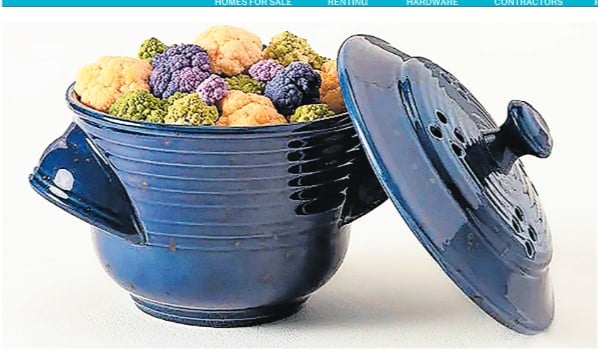Prime
Why farmers should apply organic fertilisers

An agronomist displays a package of organic fertiliser recommended for crops such as passion fruits. PHOTO by Denis Bbosa
What you need to know:
- With the second annual farming season underway, Uganda Industrial Research Institute (UIRI) urges farmers to use organic fertilisers, writes Denis Bbosa.
The rains are on and the farmers countrywide are fretting about the diverse effects that are at most time associated with heavy rains. Inevitably, soil degradation sets in which subsequently affects agricultural products on the local and international market.
According to Julius Turyamwijuka, an Industrial Chemist who has worked with Uganda Industrial Research Institute (UIRI) for eight years, farmers need to scrutinise the types of fertilisers suitable to curb soil degradation.
Turyamwijuka, who heads the Organic Fertiliser Section at UIRI, proposes a shift to Fertiplus Organic fertiliser by farmers. A recent survey by IFDC carried out on soil mapping in Uganda in 2013, shows a serious nutrient deficiency in Uganda’s mostly acidic soils.
Because of soil degradation due to overuse of soils and climate change, Turyamwijuka reveals that very poor yields, chronic food shortage leading to malnourishment have resulted in the country.
Fertilisers should improve soil structure
Turyamwijuka, tips farmers to go for fertilisers that are environmentally friendly, improve soil structure, help retain moisture in the soil, increase nutrients availability to plants, being a catalyst that increases microbial life in the soil.
Fertiplus, is one such a fertiliser according to Turyamwijuka and also restores soil back to its original vitality.
He says the high Ca9 in Fertiplus prevents flower abortions especially in tomatoes. The humic and fluvic acid in the fertiliser repels all soil pests and facilitates uptake of all nutrients to the plant.
Avoid chemical fertilisers
“I have had experiences in visiting organic fertiliser making factories in China and USA and discovered that they settle for non-chemical fertilisers and that is why their produce dominates the world market,” Turyamwijuka advises.
Since 2009, he has been doing research on biochar organic fertilisers at UIRI using local raw materials most of which are regarded as waste, like municipal waste, charcoal powder and bamboo.
Fertiplus is in solid pellets and is directly incorporated in the soil around the plant. A 25kilogramme bag goes for Shs55,000 at their head office at Muganzirwazza and other upcountry distribution points. One bag works on a quarter of an acre for most of the crops and is applied once a season.
Gudula’s re-soil fertilisers
From the Fertiplus fertlisers, Gudie Leisure Farm - a zero waste integrated ecosystem farm in Najjera, offers the re-soil fertlisers which can also can tame soil degradation.
“We partnered with experts from the University of Mannheim in Germany to come up with the re-soil fertilisers in 2015,” Gudula Naiga, the farm owner, reveals.
Among other traits that separate re-soil from the usual fertilisers is the ability to enhance soil, retain water for more than 15 days, improving soil restructure, reducing the need for chemical fertilisers, giving nutrition to the soil, allow aeration and can last over three years without reapplying.
Nature friendly technology
“We apply composite, dung, charcoal, plant manure and soil to make one 10-kilogramme bag,” she says.
She decries the long process – usually a month - it takes to manufacture one bag (costs Shs35000 each) but hastily says the wait is worthwhile.
“You may need 100 kilogrammes to cover one acre of land but the application depends on the type of soil. Plants that take longer periods to grow such as coffee and banana need direct application while crops like dodo, cabbages and sorghum need spreading of the fertilisers. We are partnering with prominent institutions such as Naro that has approved the fertilisers. The demand is on the rise because our product is purely organic,” she said.
Types of organic fertilisers
Unlike commercial chemical fertilisers, organic fertiliser for gardens is typically made of single ingredients and can be matched to your garden’s particular nutritional needs.
The types of organic fertilisers can come from plant, animal or mineral sources, depending on what chemicals your garden requires. In order to qualify as an organic fertiliser, the materials must naturally occur in nature.
Best organic fertiliser
There are a number of organic fertilisers from which to choose. There may be all-purpose chemical fertilisers, but this doesn’t exist in the organic side of gardening. Different organic fertilisers add different nutrients and ingredients to the soil. The materials you need depend completely on your soil and the plants you are growing in the garden.
Plant-based fertilisers
Plant-based fertilisers break down quicker than other organics, but they generally offer more in the way of soil conditioning than actual nutrients. These materials, such as alfalfa meal or compost, help to add drainage and moisture retention to poor soils.
Other plant-based fertilisers include: cottonseed meal, molasses, legume cover crops, green manure cover crops, kelp seaweed, and compost.
Animal-based fertilisers
Animal-based fertilisers, such as manure, bone meal or blood meal, add lots of nitrogen to the soil.
It’s great for leafy plants and strong growth in the early weeks of gardening. Additional animal-based fertilisers for the garden include: fish emulsion, milk urea (urine) manure tea.
Mineral-based fertilisers
Mineral-based fertilisers can add nutrients to the soil, as well as raising or lowering the pH level when needed for healthy plant growth. Some of these types of organic fertilisers are: calcium epsom salt (magnesium and sulfur).




